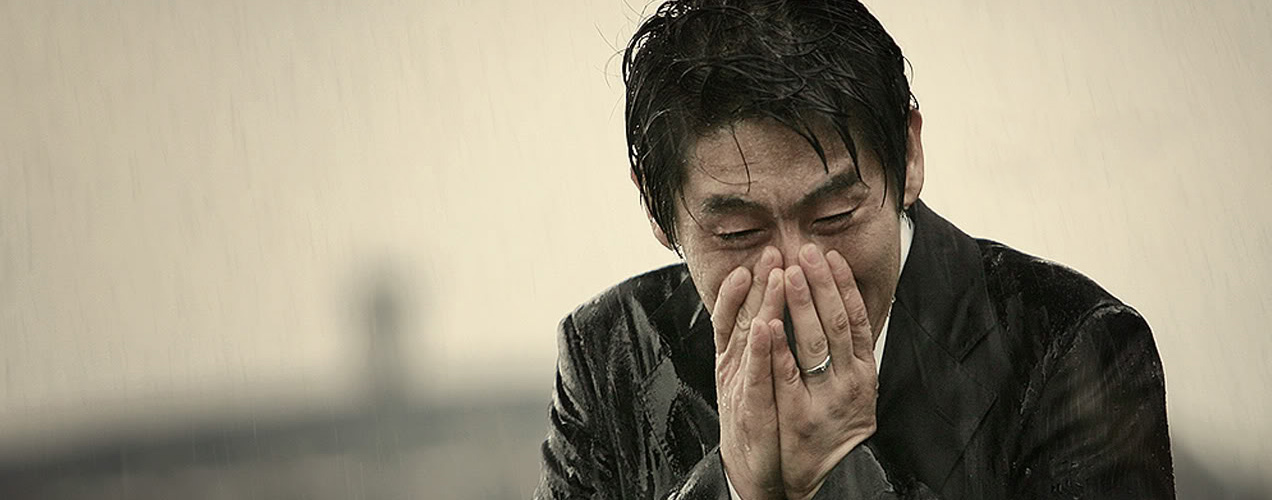2007 / Park Jin-pyo > It’s been quite a while since Korea’s had a film worth writing home about, but Park’s Voice of a Murderer seems to have passed that test with flying colors. Loosely based on the true story of the kidnapping of a popular anchorman’s young son, the film is filled with emotional tension that resonates from the absolute fear of helplessness. What can one do to save one’s child if nothing seems to be enough? Thrown amongst the somewhat exaggerated ineptitude of the police, the parents’ faith in their beliefs and themselves is questioned, leading to another powerful and memorable performance by my personal favorite Korean actor, Sol Kyung-gu. For Park, this is a less melodramatic follow-up to You Are My Sunshine, but one that shows his maturation with its grittiness and efficiency.
Category Archives: 3.5
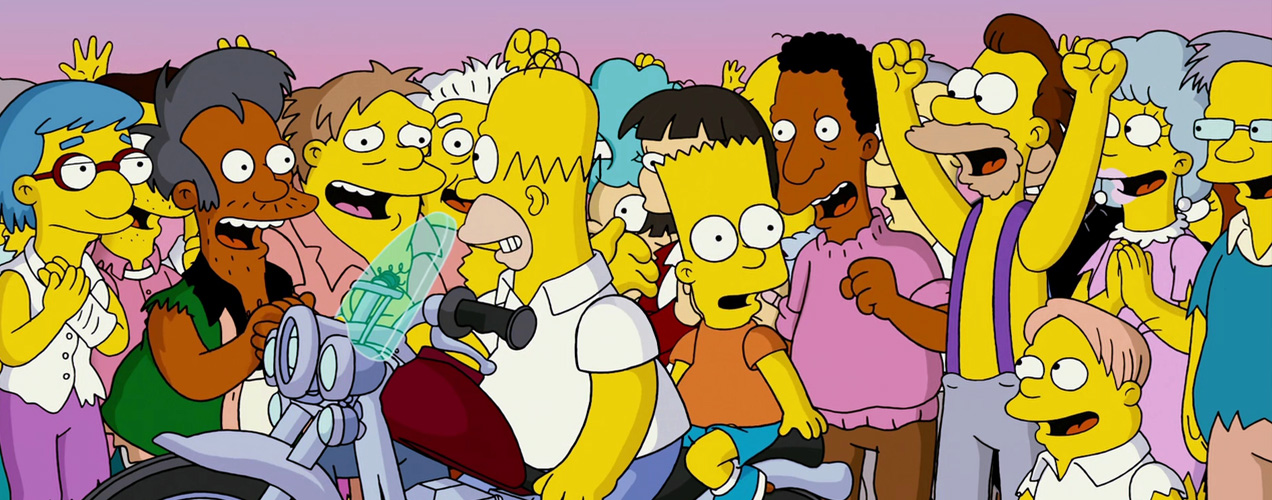
The Simpsons Movie
2007 / David Silverman > Truth be told, there wasn’t much that could’ve been done to fully satisfy me here. Wherein South Park: Bigger Longer & Uncut delivered what its title promised, The Simpsons Movie essentially failed in sufficiently going beyond the boundaries of what television could already provide. It’s incredibly enjoyable, but not enough to keep it decisively memorable and separate from its broadcast brethren. (Bart’s penis can barely hold a candle to the brilliance of “Uncle Fucka.”) But it’s The Simpsons Movie, and we’ve waited eighteen damn years for it. My expectations were high, sure, but it’s still a grand showing. I think I even teared a little when the videotape played.
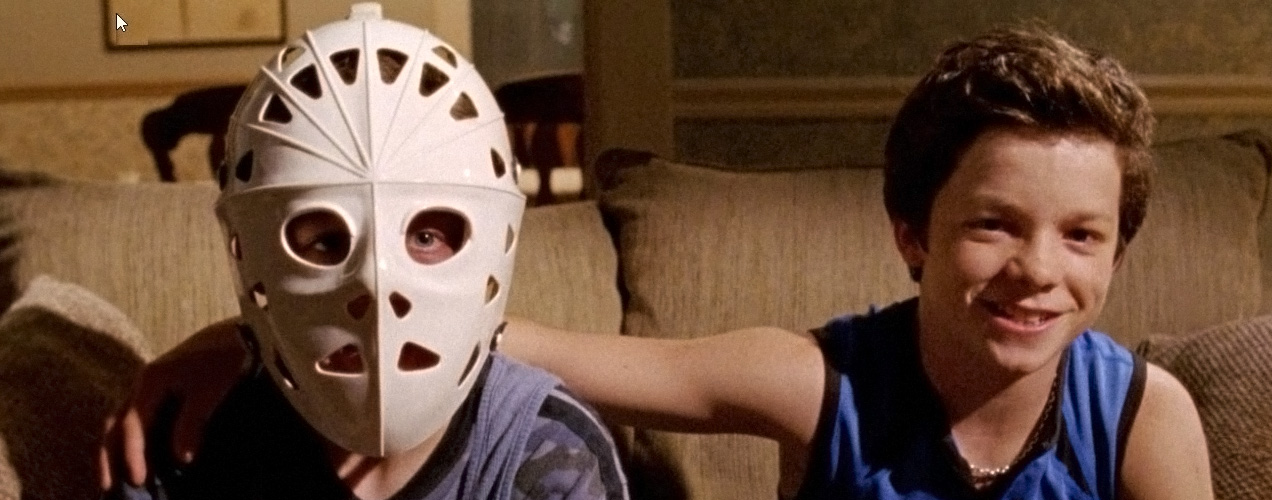
12 and Holding
2006 / Michael Cuesta > Turning thirteen and technically becoming a teenager, that’s when the struggles of adolescence becomes official. But there are always those who hit their strides earlier due to special events that surround their lives—family, death or love, for example. In these times, a child is forced to act years in advance of their actual age, replicating what they’ve learned from those around them and on television and books. But always in this state of being precocious, it’s important to remember that they retain their naivety. That naivety is what Cuesta so very impressively portrays in Twelve and Holding. The challenge for a filmmaker with such material is never the shock factor one needs to achieve, but rather to justify its existence within the scope of the film. Cuesta’s treatment is gentle, intelligent and all the while respectful to the nuances of growing up.
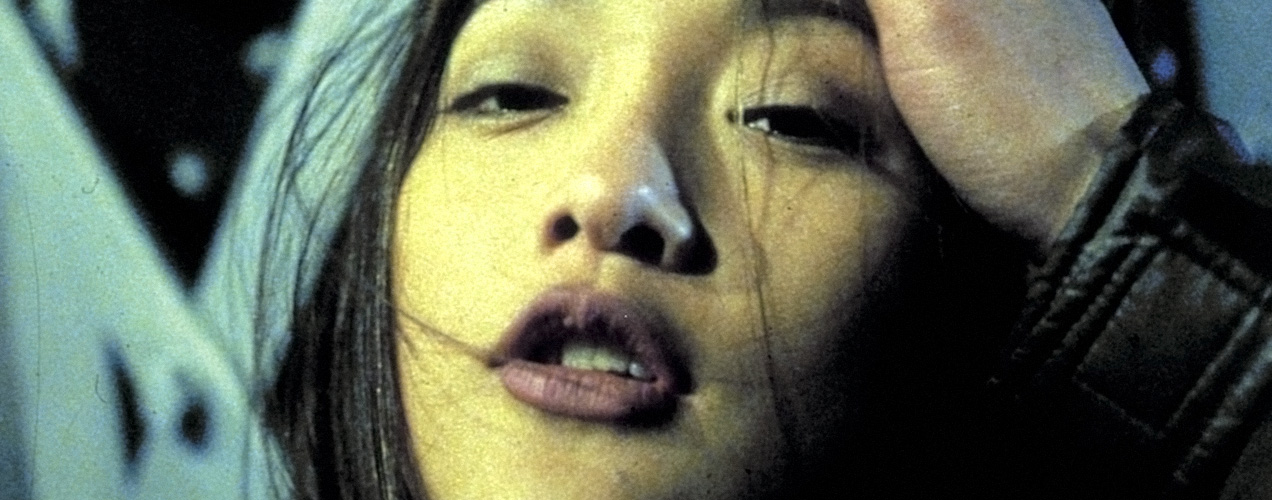
Suzhou River
2000 / Lou Ye > This might be the first film since the early 90s outings from Zhang Yimou and Chen Kaige that has made me believe in the future of mainland Chinese cinema. Having been unable to adjust to critically acclaimed films of Zhang Ke Jia, I was worried that most of what was being made in the mainland—of slow, deliberate pacing reminiscent of the Taiwanese New Wave. But with Suzhou River, one can hope that these elements will continue to be combined with the vibrancy present in Wong Kar-Wai’s Chungking Express and the local mood of modern China. By itself, it’s a tangential homage to Vertigo that’s both beautiful and heartbreaking. While separately it often feels grossly derivative, the combined product is as fresh as it is youthful.
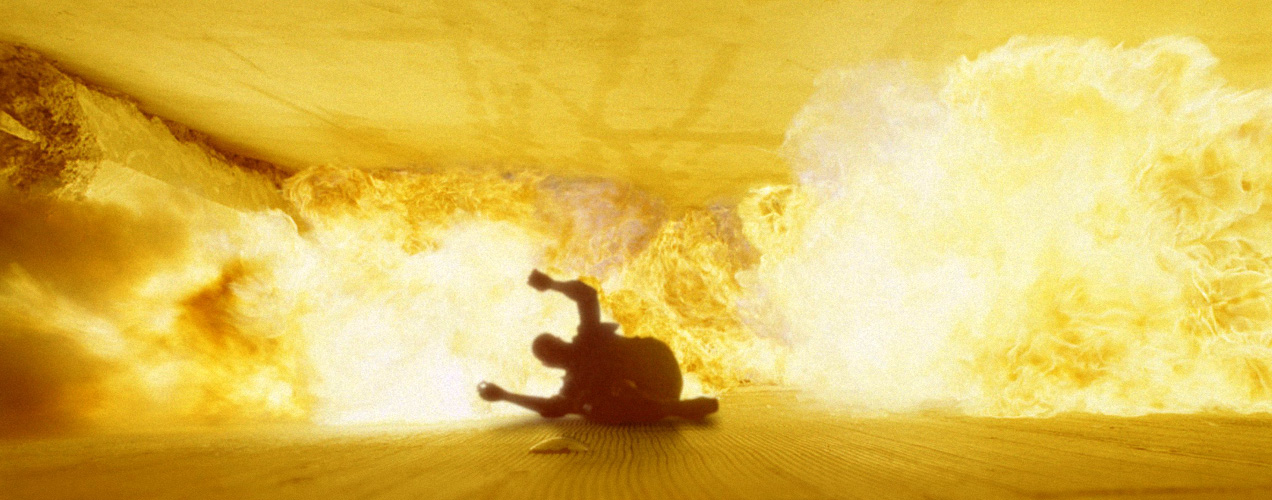
Live Free or Die Hard
2007 / Len Wiseman > Die Hard films are about being in a position of impossibility. The building, the airplane—they made sense. But when Die Hard: With a Vengeance successfully moved away from that formula, the title became a bit of a misnomer. With Live Free or Die Hard, Wiseman moves even further away from the original premise, and those who remain loyal to the originals will undoubtedly be disappointed. But I’ve moved on, and this is one hell of an action-packed flick. Arguably the best summer adrenaline rush since Mission: Impossible 3, once McLane starts, he never stops (although Maggie Q almost makes that happen). Enjoy the mindlessness, don’t think too hard about the economics or the technology and let Willis help you forget that he’s 52 years old.
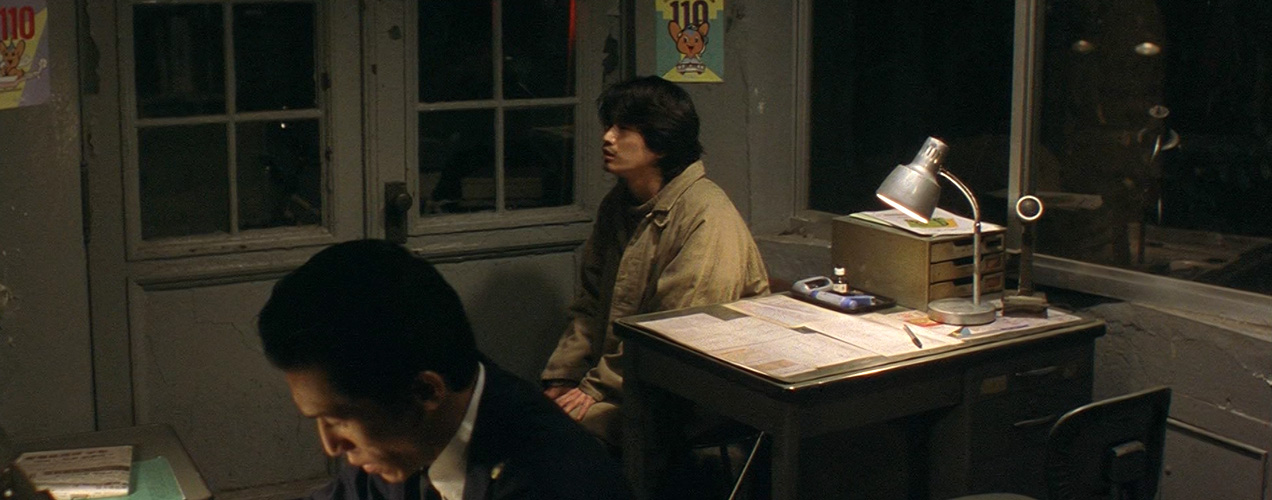
Cure
1997 / Kiyoshi Kurosawa > Visible horror is often forgettable. It’s the creepy feeling that remains after the film is over that really drives home the chills. Unfortunately, most films fail at this and end up being filled with unnecessitated gore or overtly pretentious psychological mazes. Cure, however, connects with the inner-horror of every man and woman, filling us with a sense of paranoia that may very well stay with us at days on end. What’s amazing, though, is that that feeling isn’t necessarily “evil,” as most horror would expect us to presume. It’s simply a feeling that seems almost eye-opening and surprisingly natural.
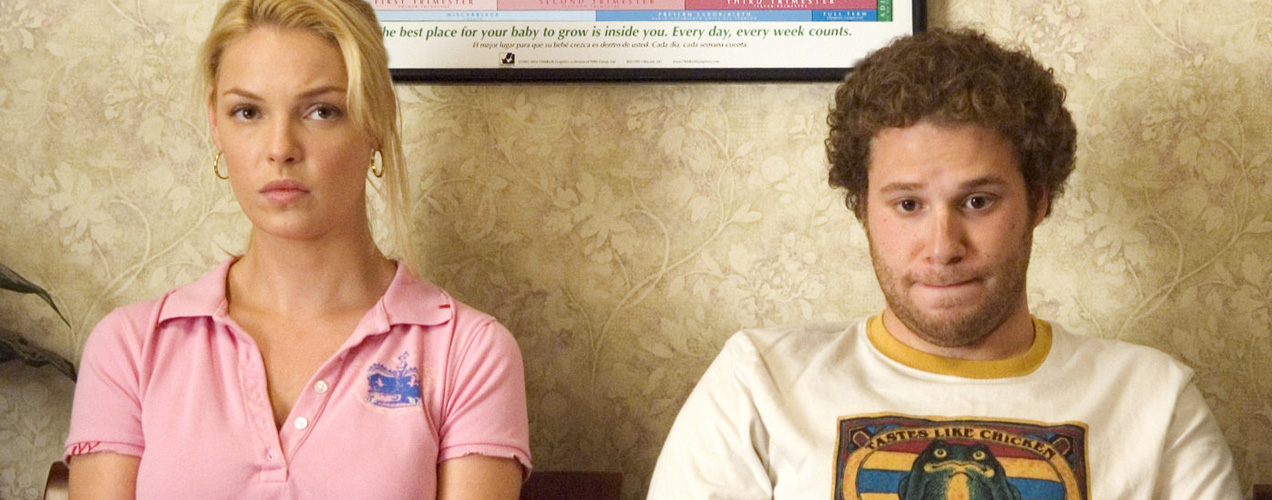
Knocked Up
2007 / Judd Apatow > It often seems that for a film about relationships to be good, there has to be some destructive forces involved with cynicism abound. But Apatow is better than that: Judging from his work on Freaks and Geeks, where he tackled a topic of much maligned stereotypes with a level of reverence unfound elsewhere, he’s figured out how to turn common, beaten topics into constructive expositions. In Knocked Up, he successfully balances the jokes, the pop culture references (often needed to understand the nuances of the male protagonist) and the reality of an accidental pregnancy. It’s touching, it’s commendable and it’s got Matsui.
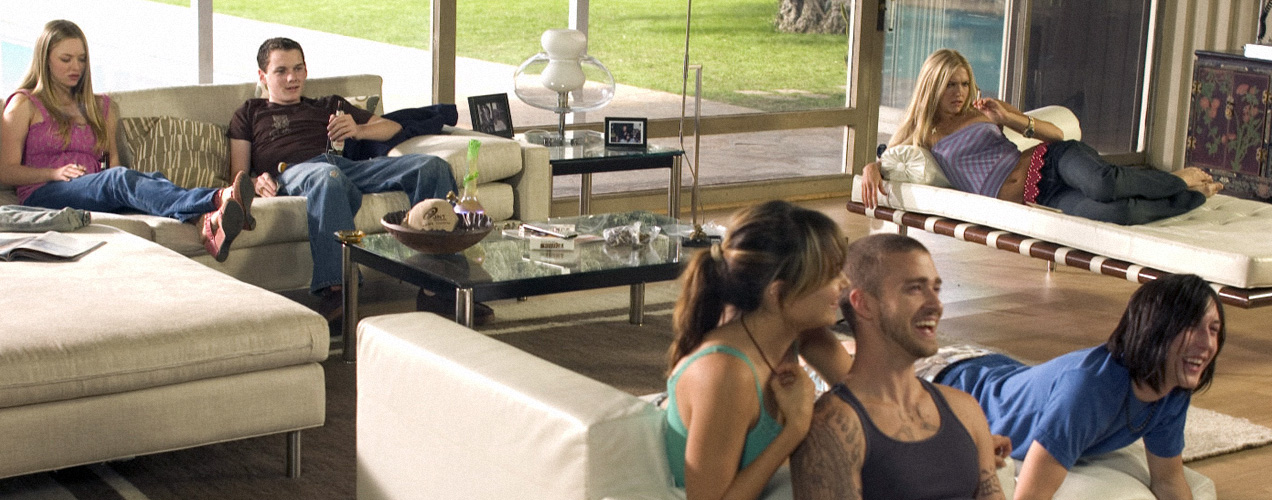
Alpha Dog
2007 / Nick Cassevetes > I’ll consider myself fortunate to start the year off with two films that were not critically well-received, but have nonetheless given me an abundance of entertainment. Along with Smokin’ Aces, Cassevetes’ seemingly satirical look at the lives of irreverent, hedonistic teens in Southern California is sometimes witty, sometimes outrageous, and almost impossible to stop one’s self from watching. In the right light, his is a tragic mockumentary, filled with polarizing scenes of drug abuse and sex, anger and lack of control.
Emile Hirsch continues to impress and mature, and Ben Foster gives one of the more intense performances (reminiscent of Spud from Trainspotting) I imagine we’ll see all year. Justin Timberlake isn’t great, but is watchable. (The problem with popstars in acting is that you always focus on them, judge them deeply and in the process, forget that there is a film around them; thankfully, it’s not so much the case here.) In fact, much of the acting is to the point, often over the top but fitting for Alpha Dog’s ride through mayhem and madness.
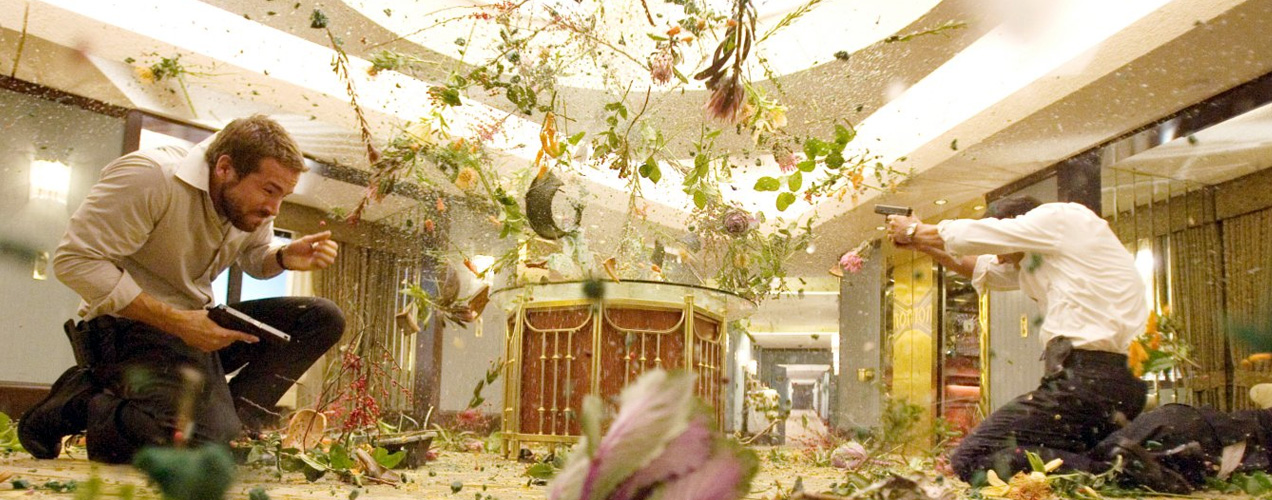
Smokin’ Aces
2007 / Joe Carnahan > While a cornucopia of outlandish fun, Carnahan’s follow-up to the critically-acclaimed Narc lacks the subtlety and tension that made his initial directing effort so effective. But that’s not to take away from the fact that for nearly two hours, I was glued to the screen with little thought of what else was around me. Whether the movie has a real point or not is not the point at all, but rather that its sustainability is jaw-dropping. It’s a fine mess, if you will, and a mess that luckily you can leave behind once the credits roll.
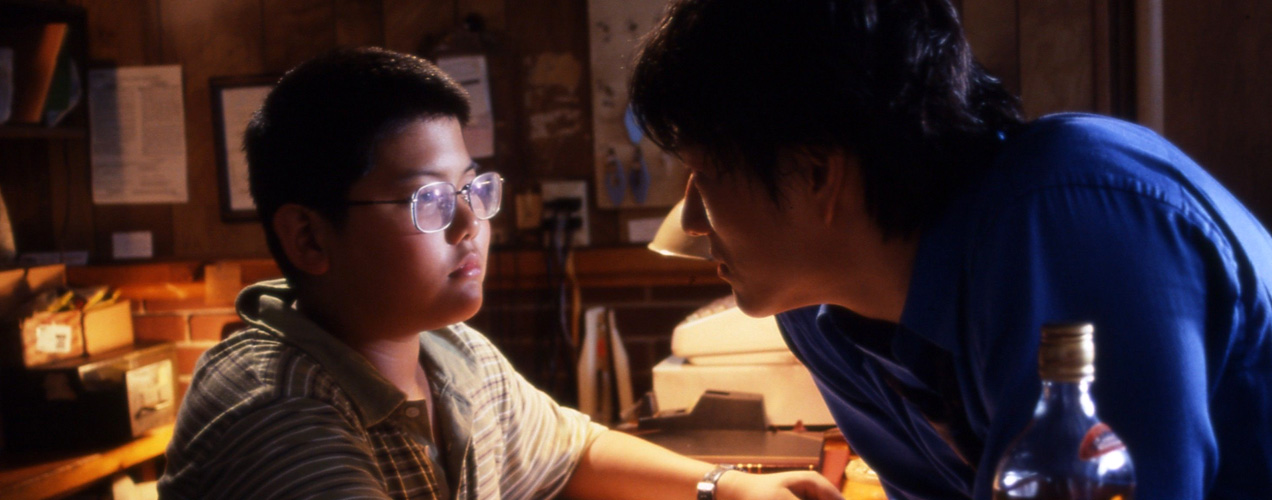
The Motel
2006 / Michael Kang > The quiet subservience of youth is often incorrectly displayed in film. There lies a difference between emotionally manipulating through stereotypes and enveloping the stereotypes to build a foundation for something more. Kang does the latter here, gently and effectively. Non-actor Jeffrey Chyau’s lead character is unassuming and imperfect, but is as a boy his age should be. One of the key reasons the film works is because Kang doesn’t seem to approach this as an “Asian-American” film, but rather a film about growing up where the central character just happens to be Asian.
Along with Saving Face, this is arguably the only other so-called Asian-American film that I find myself recommending to others. I’m now anxiously awaiting Kang’s next film, West 32nd, which as far as I know is the first film that Korea’s CJ Entertainment has funded for a Korean-American director as well as Korean-American stars (John Cho and Battlestar Galactica’s Grace Park).

